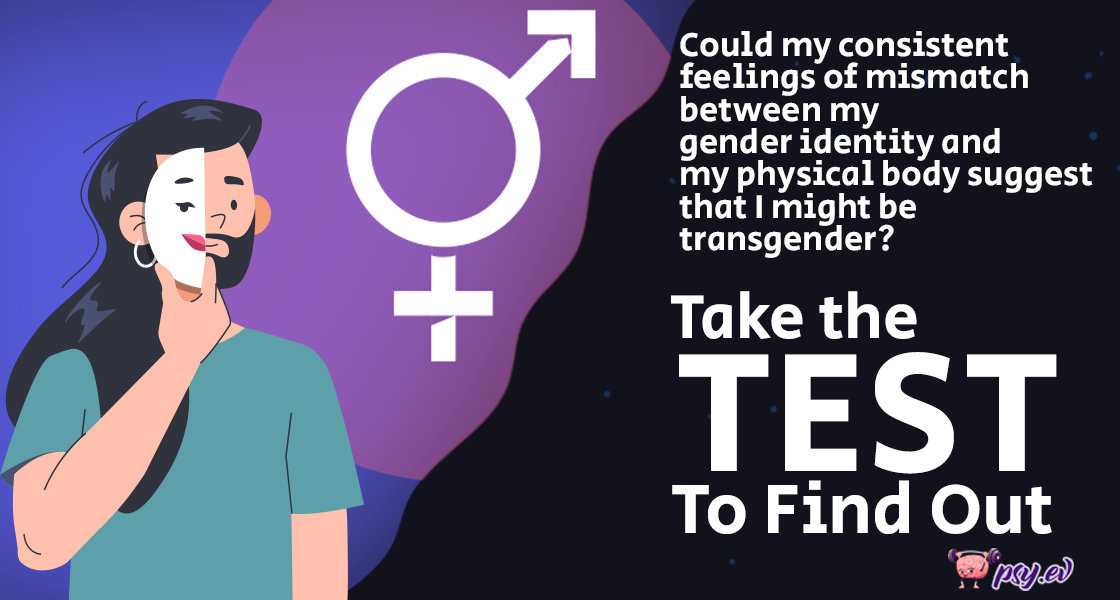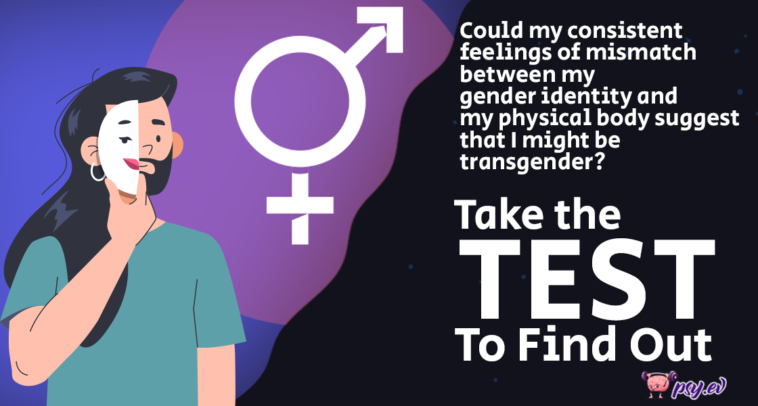Gender identity refers to the gender/sex we identify as. While many people have the same gender identity as they were born, some don’t feel like themselves with the gender they were born with. Transgender identity describes someone whose gender identity differs from what they were assigned at birth. For instance, a person assigned male at birth may identify as a female or, specifically, a transgender female.
Take the ‘Am I transgender quiz?’ to learn more about yourself.
Understanding Transgender Identity
Transgender people and trans identities are largely misunderstood. This has resulted in confusion and unawareness about what it means and what it takes to be a transgender person.
Many transgender individuals undergo surgical procedures and hormonal therapies to change their sex and attain the gender they identify as. However, many trans individuals may choose not to transition or do it in stages. Completely changing your sex isn’t a prerequisite to being transgender.
Transgender identities often spring from gender dysphoria. A person who suffers from gender dysphoria feels uncomfortable with the sex they were assigned at birth. Because of this, their quality of life is significantly impacted. They may feel like they are trapped in someone else’s body and that they can’t show or be their true self.
Gender dysphoria may lead to other mental health issues like depression, anxiety, or eating disorders. Many individuals don’t recognize or identify their gender dysphoria until later.
Identifying as transgender requires the understanding and acknowledgment that your current gender is different from the gender you believe you are. This journey is not easy, especially for young people who may not fully grasp the psychological issues caused by gender dysphoria. Then, there’s the societal stigma that still exists to this day. The potential discrimination and judgment may hinder individuals from embracing their trans identity.
It’s also important to distinguish the transgender term from gender non-conforming. The latter term is used for individuals who don’t confine themselves to the usual gender standards set by society but they may not be trans.
Navigating the Transgender Journey
If the ‘Am I transgender’ quiz reveals that you may be trans, consulting with a professional is advised. A sex therapist or counselor may help you understand your gender identity and sexual orientation better. While this test is a step towards discovering your true sex identity, it’s not a definitive answer. You may need to figure out your identity with the help and support of family, friends, and doctors.
If you identify as a sex different from your current gender, you can embark on your trans journey. Fortunately, there are educational resources available through transgender and LGBT-friendly non-profits. Similarly, some guidance counselors specialize in LGBT issues, including gender transition.
It’s entirely up to you how you want to proceed with your transition if you want to go through one at all. Many trans individuals choose not to go through surgical or hormonal gender transition. Your doctor can give you the best advice. They can educate you about possible side effects of certain procedures, for example, feminizing hormone therapy for trans women.
Being a transgender person can also be challenging for your mental health, especially if you don’t get the support and acceptance you deserve. Counseling from a certified therapist can go a long way in attaining the freedom and peace of mind you’ve longed for.
Take the trans quiz to know more and consult a professional to discuss the findings further.


